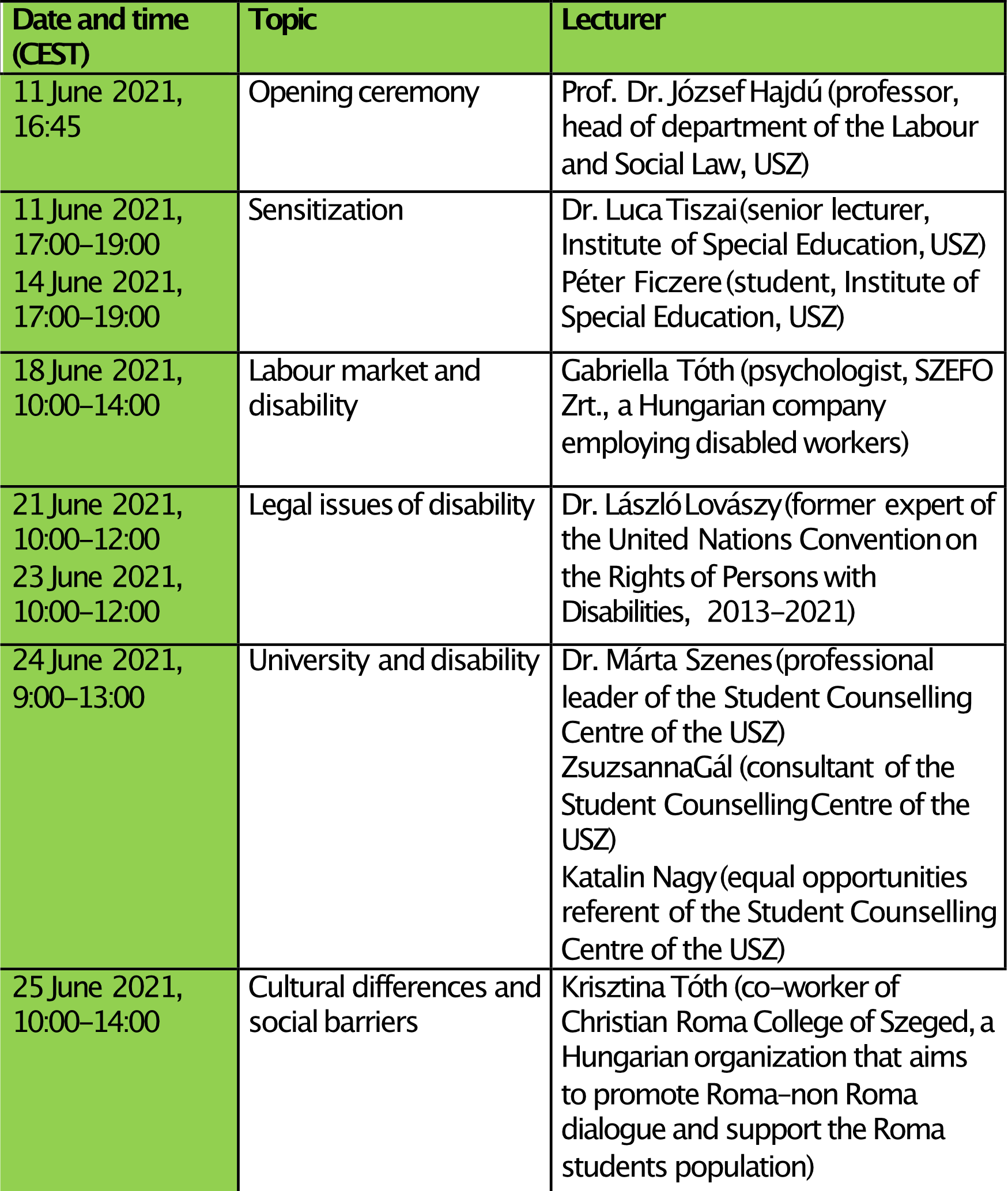
Objectives
The main aim of the 20 hours training workshop is to reinforce individual skills of the disadvantaged student population (namely, with disability and with special educational needs) from all of the EUGLOH partner universities. It intends to be an initiative dedicated to the employability and social inclusion of the disadvantaged student population, open to all students.
The training provides perspectives on a smoother social inclusion and adaptation to the labour market of disadvantaged populations. The planned activities will be developed according to identified needs in professional skills and legal background by the training experts team. The team members have mixed background: university teachers (deaf) and student with disadvantages (wheelchair), University counselling centre for the support of disadvantaged students, a lecturer from the Christian Roma College and a representative (blind person) from labour market (company which hires mainly disabled persons).
The topics are varied, such as the search of integration in higher education and later into the labour market, the importance of networking, UN and EU values and identity, good practices, etc.
Pedagogic methods/tools:
Virtual meetings adapted to each specific need (e.g. deaf, blind); meeting between Career Development and Special Needs Offices representatives, and companies; contacts between professional (once in a disadvantage situation) and students (currently on a disadvantage situation), to share their experience on overcoming the additional challenges.
With this online training, we would like to give insight into everyday difficulties of disadvantaged students at the university and of disadvantaged people at the workplace. By sharing good practices, the training will be a platform of exchanging ideas and of disability awareness. Furthermore, the legal framework of the UN Convention on the Rights of Persons with Disabilities (CRPD) will be outlined by a former member of CRPD Committee.
Lecturers themselves are also affected through their disability or occupation.
From the content:
- We’ll focus on team building and communication among participants, with general and course-related icebreaking games, and take interactive exercises simulating everyday campus situations related to students with disabilities.
- We’ll tackle the issue of disability and employment by introducing some of the challenges, stereotypes and attitudes related to people with disabilities and how this affects them on the labour market.
- We’ll introduce the United Nations Convention on the Rights of Persons with Disabilities. In relation to the Convention, the most current bioethical and technological trends, rehabilitation as well as human rights challenges and issues will also be provided for our students.
- We‘ll highlight university responsibilities by introducing students to individual counselling and group trainings and the issues of caring for students with mobility impairments, visual impairments, hearing impairments, autism and learning disabilities.
- We’ll highlight issues regarding the situation of Roma students in society and higher education by highlighting the challenges and university good practices.
The available digital tools during the training:
- real time text transcription (e.g. subtitles),
- distribution of teaching materials (e.g. handouts, training materials, ppt-s, etc.) in advance.
Both disadvantaged and non-disadvantaged students of the Université Paris-Saclay, Lund University, Ludwig-Maximilians-Universität München, Universidade do Porto and University of Szeged are welcomed at the online training workshop.
Early registration is welcome.
Language: English Certificate/ECTS: 2 ECTS credits and certificate but students must attend at least 80% of each training day to get the credits.
-
Registration
Registration: Please register here.
Contact person: In case of questions please contact Dr. Andrea Labancz (labancz.andrea@szte.hu).
-
Programme

